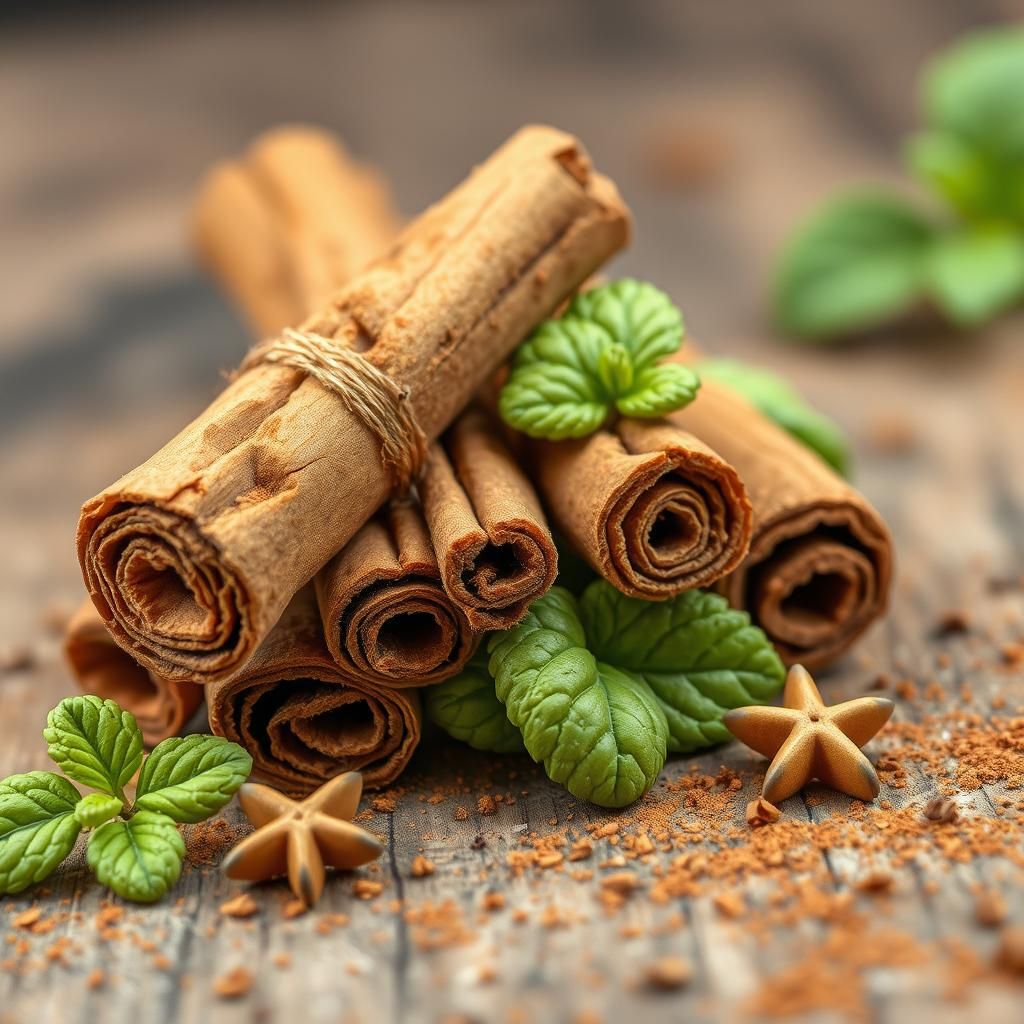What Plants Not to Use Cinnamon On? Essential Tips for Gardeners

Cinnamon is often hailed as a natural remedy for various gardening challenges, from pest control to fungal diseases. However, not all plants respond positively to this aromatic spice. Understanding which plants to avoid when using cinnamon is essential for gardeners looking to maintain a healthy, thriving garden. This article will explore specific plants that may be adversely affected by cinnamon application, as well as provide essential tips to ensure your gardening practices are beneficial rather than detrimental. By keeping these guidelines in mind, you can protect your plants and promote a flourishing garden environment.
What Plants Should Be Avoided When Using Cinnamon?
Using cinnamon as a natural fungicide and insecticide can be beneficial for many plants, but there are certain species that may react negatively to its application. Cinnamon can disrupt the delicate balance of certain plants by inhibiting their growth or causing harmful effects. For instance, plants that thrive in high humidity may experience adverse reactions, as the potent compounds in cinnamon can dry out their leaves. Additionally, sensitive plants, such as some varieties of orchids and ferns, may suffer from cinnamon's strong antibacterial properties, leading to potential stunted growth or leaf burn. Therefore, it's essential to identify and avoid using cinnamon on plants that are more prone to these sensitivities to ensure their health and vitality.
Orchids
Orchids are known for their sensitivity to environmental changes, and using cinnamon on them can be detrimental. The antimicrobial properties of cinnamon may hinder their growth and flowering processes. Since orchids thrive in specific humidity levels, the drying effect of cinnamon can lead to leaf damage or rot, preventing these beautiful plants from reaching their full potential.
Ferns
Ferns prefer a humid environment, and the use of cinnamon on them is not recommended. The strong compounds in cinnamon can dry out the delicate fronds, leading to browning edges and overall decline in health. Moreover, their sensitive root systems can be negatively affected by the application, impairing their ability to absorb essential nutrients from the soil.
Succulents
While some gardeners use cinnamon to prevent fungal diseases, applying it to succulents may backfire. These plants require specific moisture levels, and the high concentration of cinnamon can absorb too much moisture, leading to dehydration. This can result in wrinkled leaves and stunted growth, ultimately compromising the health of the plant.
See also:
Seedlings
Using cinnamon on seedlings is often discouraged since they are particularly vulnerable during their early growth stage. The strong composition of cinnamon can inhibit their delicate growth, leading to the potential for stunted development. Instead, it’s better to employ gentler methods for disease prevention during this critical stage.
Air Plants
Air plants, or Tillandsia, are particularly sensitive and should not be treated with cinnamon. Their unique adaptation to absorb moisture and nutrients from the air can lead to adverse reactions when introduced to cinnamon. The drying properties of the spice can cause damage to their leaves, which may impair their ability to thrive in their specialized environment.
| Plant Type | Reason to Avoid Cinnamon |
|---|---|
| Orchids | Sensitive to drying effects and antimicrobial properties. |
| Ferns | Requires humidity; may dry out and cause damage. |
| Succulents | Can absorb too much moisture; may lead to dehydration. |
| Seedlings | High sensitivity to strong substances; may stunt growth. |
| Air Plants | Adapted for unique conditions; may suffer from dryness. |
Understanding the Impact of Cinnamon on Sensitive Plants
Cinnamon is often lauded for its fungicidal properties and ability to deter some pests, but it is crucial for gardeners to recognize that not all plants respond positively to this spice. Certain sensitive species, such as seedlings or plants with delicate foliage, can suffer from burn or inhibited growth when exposed to cinnamon. These plants may be particularly vulnerable to the high concentration of cinnamon oil, which can act as a harsh chemical and disrupt their natural development. Therefore, it's essential for gardeners to carefully assess which plants should be kept free from cinnamon to ensure their health and vitality.
Identifying Sensitive Seedlings
When nurturing seedlings, it is vital to understand that these young plants have delicate structures that can be adversely affected by certain substances. For instance, cinnamon, when applied too liberally, can create a barrier that hampers nutrient absorption and breathability of the soil. Seedlings of crops like tomatoes and peppers might exhibit poor germination rates or stunted growth if exposed to cinnamon, making it essential for gardeners to avoid using this spice on these young plants.
Impact on Foliage of Houseplants
Many houseplants, particularly those with soft or finely textured foliage, can react unexpectedly to the application of cinnamon. The essential oil found in cinnamon can create a burning effect on the leaves of plants such as fern and African violets, leading to browning or even leaf drop. Gardeners should be cautious and consider using less invasive pest deterrents to protect these decorative species without risking damage to their foliage.
See also:
Cinnamon and Flowering Plants
Flowering plants, especially those that produce delicate blossoms, can be compromised by cinnamon’s potent nature. For example, plants like geraniums or petunias might react negatively, resulting in discoloration of petals or even bud drop. The application of cinnamon around these plants should be approached with care, as the attractiveness of their blooms is often tied closely to their health, which can be jeopardized by the chemicals found in cinnamon.
Vegetable Plants That May Suffer
Certain vegetable plants, particularly those in the squash and cucumber families, can be sensitive to cinnamon due to their more vulnerable root systems. Overapplication of cinnamon can lead to root rot or delayed growth, significantly impacting the yield. Gardener care should be taken to evaluate how and when cinnamon is used, ensuring it doesn't interfere with the essential growth stages of these fruit-bearing plants.
Alternatives to Cinnamon for Pest Management
Given the potential risks associated with using cinnamon, it's advisable for gardeners to consider alternative pest control methods. Options such as neem oil, diluted soap solutions, or even natural predators can effectively manage pests without posing the same risks to sensitive plants. Gardeners should focus on identifying the specific threats to their plants and match their pest management strategies accordingly, maintaining the balance of health and vibrancy in their garden ecosystem.
Questions from Our Readers
What plants should not be treated with cinnamon?
Cinnamon can be beneficial for many plants, but it should not be used on ferns and succulents, as these plants can have sensitive foliage and may be adversely affected by the application of cinnamon. It is best to avoid using cinnamon on tropical plants, which may have more delicate leaves.
Can cinnamon harm any specific herbs?
Yes, while cinnamon can help with some herb plants, it is not recommended for basil and mint, as these herbs can be sensitive to fungicides and might respond poorly to the application of cinnamon. It’s important to monitor the health of these plants if cinnamon is applied.
See also:
Is there a risk of using cinnamon on flowering plants?
Cinnamon can inhibit the growth of certain flowering plants, particularly those that are more delicate, like geraniums and impatiens. These plants may suffer from stunted growth or other negative effects when exposed to cinnamon.
What should be considered before using cinnamon on houseplants?
Before using cinnamon on houseplants, it is crucial to assess the plant's type, as some like peace lilies and spider plants might be sensitive to cinnamon. Always conduct a patch test on a small part of the plant to check for any adverse reactions.

If you want to read more articles like What Plants Not to Use Cinnamon On? Essential Tips for Gardeners, we recommend you check out our Plants category.
Leave a Reply
Related Articles